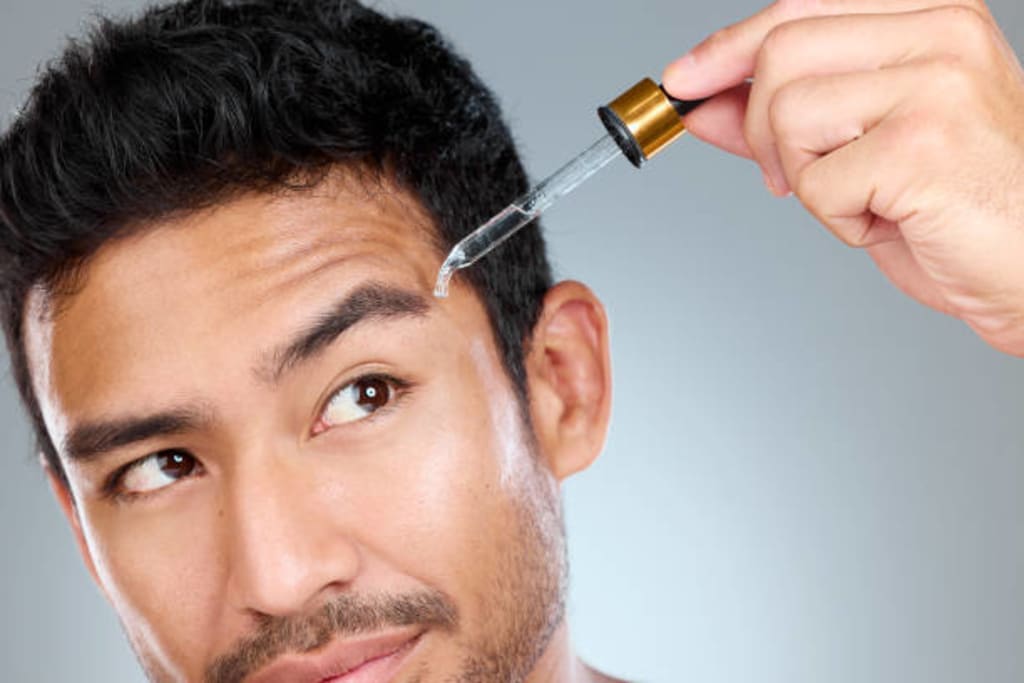Serum vs. Moisturizer
Can One Replace the Other?

In the realm of skincare, serums and moisturizers are often considered indispensable components of a comprehensive routine. However, with the myriad of products on the market and the desire for a streamlined skincare regimen, a common question arises: Can a serum replace a moisturizer? To answer this, it's essential to understand the distinct roles and benefits of each product.
Understanding Serums and Moisturizers
Serums are lightweight, fast-absorbing liquids designed to deliver high concentrations of active ingredients directly to the skin. They typically contain a variety of potent ingredients such as antioxidants, peptides, and hyaluronic acid, targeting specific skin concerns like aging, hyperpigmentation, and hydration.
Moisturizers, on the other hand, are creams or lotions formulated to hydrate and create a protective barrier on the skin's surface. They work to lock in moisture, prevent water loss, and protect the skin from environmental aggressors. Moisturizers generally contain a mix of emollients, humectants, and occlusives to achieve these effects.
The Core Functions: Hydration vs. Treatment
Hydration: Moisturizers are primarily designed to maintain skin hydration. They contain occlusive agents that form a barrier on the skin, preventing moisture loss. Emollients in moisturizers help smooth the skin’s surface, while humectants draw water into the skin from the environment and underlying layers.
Treatment: Serums are formulated to address specific skin issues with concentrated active ingredients. Because they are lightweight and have smaller molecules, serums can penetrate deeper into the skin, making them effective for targeted treatments such as reducing fine lines, brightening dark spots, and improving overall skin texture.
Can a Serum Replace a Moisturizer?
The short answer is: Not entirely. While serums offer exceptional benefits and are an excellent addition to any skincare routine, they are not designed to replace the moisturizing function that a moisturizer provides. Here’s why:
Moisture Barrier Protection: Serums lack the occlusive ingredients necessary to create a barrier that prevents moisture loss. Without this barrier, the skin can become dry and more susceptible to irritation and environmental damage. Moisturizers are essential for maintaining the skin’s hydration levels and protecting its natural barrier.
Complementary Functions: Serums and moisturizers serve complementary roles. A serum can deliver powerful actives deep into the skin, while a moisturizer seals in those actives and adds a layer of protection. Using both ensures that your skin benefits from targeted treatment and sustained hydration.
Skin Type Considerations: For those with oily skin, it might seem tempting to skip the moisturizer and rely solely on a serum to avoid a greasy feeling. However, even oily skin needs hydration to maintain balance and prevent overproduction of oil. Opt for a lightweight, non-comedogenic moisturizer to keep oily skin hydrated without clogging pores.
Integrating Serums and Moisturizers in Your Routine
To maximize the benefits of both products, incorporate them thoughtfully into your skincare regimen:
Cleanse: Start with a gentle cleanser to remove dirt, oil, and impurities from your skin.
Tone: Apply a toner to balance the skin’s pH and prepare it for better absorption of subsequent products.
Serum: Apply a few drops of your serum onto your skin. Gently press it into your face and neck, allowing it to fully absorb.
Moisturize: Follow up with a moisturizer suitable for your skin type. This will lock in the serum’s active ingredients and provide necessary hydration and barrier protection.
Sun Protection: In the daytime, always finish with a broad-spectrum sunscreen to protect your skin from harmful UV rays.
Special Cases: When a Serum Might Be Enough
In certain situations, such as extremely humid environments or for individuals with very oily skin, using just a serum might suffice during the day. However, it’s crucial to monitor your skin’s response and ensure it doesn’t become dehydrated or compromised over time. Always listen to your skin’s needs and adjust your routine accordingly.
Conclusion
While serums are a powerhouse of active ingredients designed to address specific skin concerns, they cannot fully replace the essential moisturizing and protective functions of a moisturizer. For optimal skin health, it's best to use both products in conjunction to ensure your skin receives the treatment it needs and the hydration it craves. By understanding and appreciating the unique roles of serums and moisturizers, you can create a skincare routine that truly nourishes and enhances your skin.
To learn more about keeping your skin healthy, visit here.
About the Creator
Enjoyed the story? Support the Creator.
Subscribe for free to receive all their stories in your feed. You could also pledge your support or give them a one-off tip, letting them know you appreciate their work.





Comments
There are no comments for this story
Be the first to respond and start the conversation.